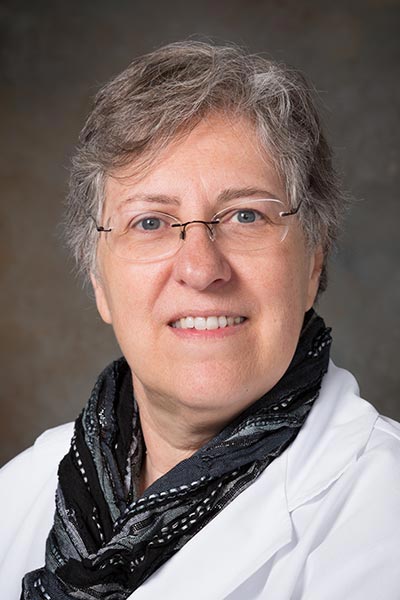AACR Presidential Address and Presidential Select Symposium will take a global view on cancer

In her Presidential Address and through the Presidential Select Symposium, AACR President Patricia M. LoRusso, DO, PhD (hc), FAACR, aims to provide the attendees of the AACR Annual Meeting 2025 a global perspective on cancer research.
First, on Sunday, April 27, she will address how the strides being made in cancer research around the world can offer insights into what is needed to advance personalized medicine. Then, on Monday, April 28, she will welcome a panel of global cancer experts to share the progress being made in their respective countries and what others can take away from their work.
“I have learned a lot about global health during my time as AACR president, and one thing I realized is how small the world really is,” LoRusso said. “The actions in one country can impact people around the world, and I believe the time is now for researchers to expand our reach so we can positively impact all communities around the globe.”
Presidential Address: From Hierarchical Molecular Composition to Transforming Oncology Drug Development
Sunday, April 27, 5:30-6:15 p.m. CT
Room S406 (Vista Ballroom), McCormick Place South (Level 4)
During her Presidential Address, LoRusso will lay out how we are only beginning to scratch the surface of what is possible when it comes to personalized medicine.
“Right now, we are at personalized medicine 101,” she explained. “Currently, drug development is not moving at the pace necessary to truly make precision medicine personalized to each individual cancer patient.”
Among the areas LoRusso will explore is the growing importance of investigating at the nano-omics level. This includes pooling together the massive amount of data collected in cancer research around the world—specifically, multiple dimensions of data obtained for each individual patient—and then utilizing artificial intelligence and machine learning to reach new levels of understanding about the biology of both the disease and of patients.
“By bringing teams together and bringing artificial intelligence and all of the ’omics tools that we are developing into the picture, I’m hopeful that one day we can accelerate clinical research and get to the point where every patient’s treatment is personalized to deliver the best outcomes.”
Presidential Select Symposium: Leveraging Science to Reduce the Cancer Burden Worldwide
Monday, April 28, 10:15 a.m.-12 p.m. CT
Room S105, McCormick Place South (Level 1)
For the Presidential Select Symposium, LoRusso has invited investigators from different parts of the world, including some of those conducting research in low- and middle-income countries, to participate in a panel discussion about the progress being made in their respective countries as well as the clinical needs that must be urgently met. The panel will be moderated by Robert G. Bristow, MD, PhD, of the University of Manchester, and Chyke A. Doubeni, MD, MPH, of The Ohio State University Wexner Medical Center.
“The information that we can potentially gain from the patients who are treated in countries with many unmet needs can accelerate the development of therapeutic interventions globally—no matter the economic potential of the individual countries,” LoRusso said.
The panelists will include André Ilbawi, MD, of the World Health Organization in Switzerland; Frank George Njoroge, PhD, of Kenyatta University in Kenya; C.S. Pramesh, MD, of the Tata Memorial Centre in India; Vanessa M. Hayes, PhD, of the University of Sydney in Australia; Sok Ching Cheong, PhD, of Cancer Research Malaysia; and Aimée R. Kreimer, PhD, and Satish Gopal, MD, MPH, of the National Cancer Institute (NCI), where they support research in low- and middle-income countries, including those in Latin America.
“Each panelist will share how their research is positively impacting patients in their respective regions,” LoRusso said.
For example, Kreimer will be presenting results from the ESCUDDO Efficacy Trial, which enrolled more than 20,000 girls between the ages of 12 and 16 in Costa Rica to compare the efficacy of single-dose vs. two-dose HPV vaccination in protecting against HPV16/18 infection.
“I hope researchers in other parts of the world can learn from all of the examples being presented, discover ways to improve components of their own research, and come to understand that we can all benefit from the knowledge being acquired in low- and middle-income countries,” LoRusso said.
More from the AACR Annual Meeting 2025
View a photo gallery of scenes from Chicago, continue the conversation on social media using the hashtag #AACR25, and read more coverage in AACR Annual Meeting News.

